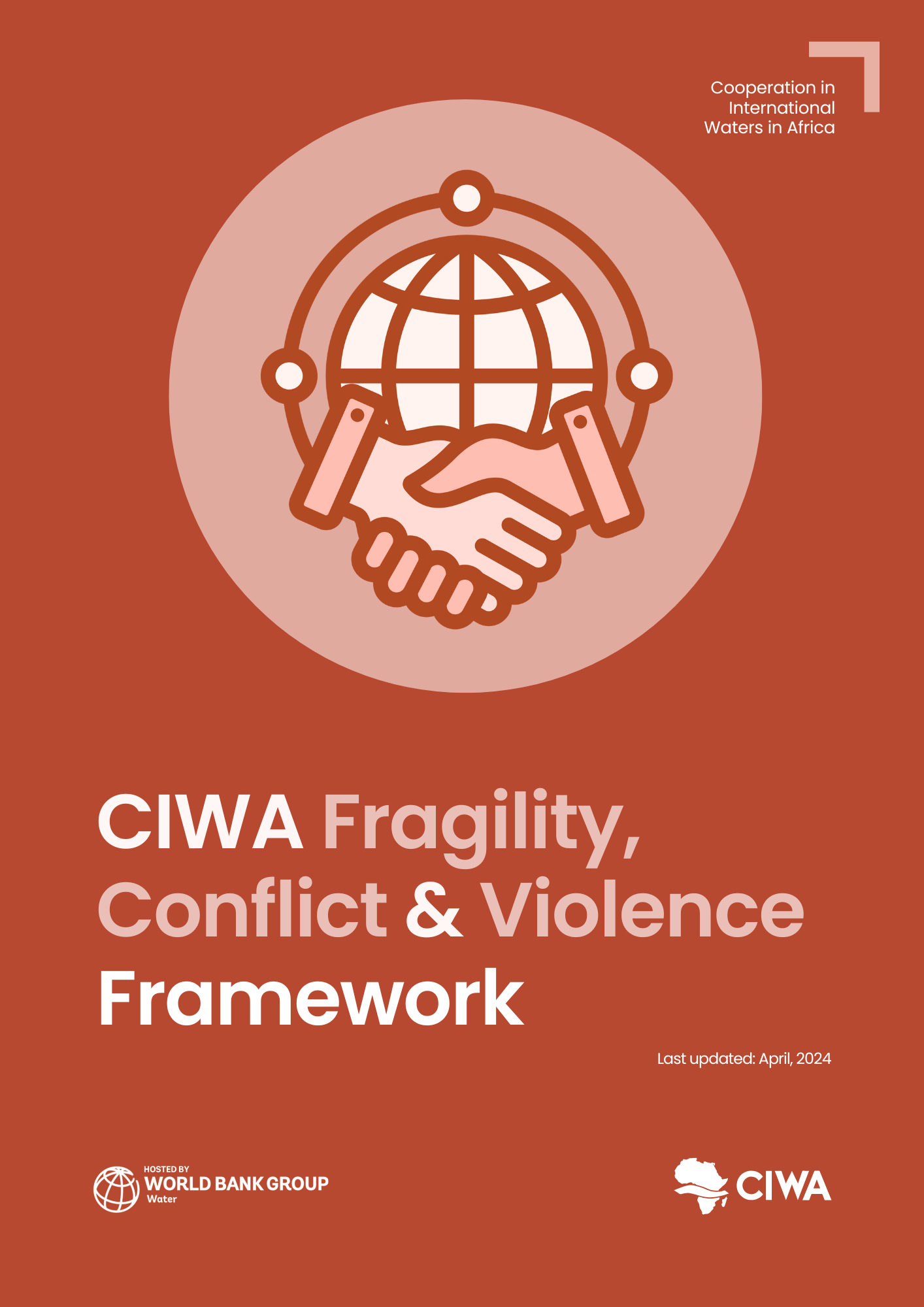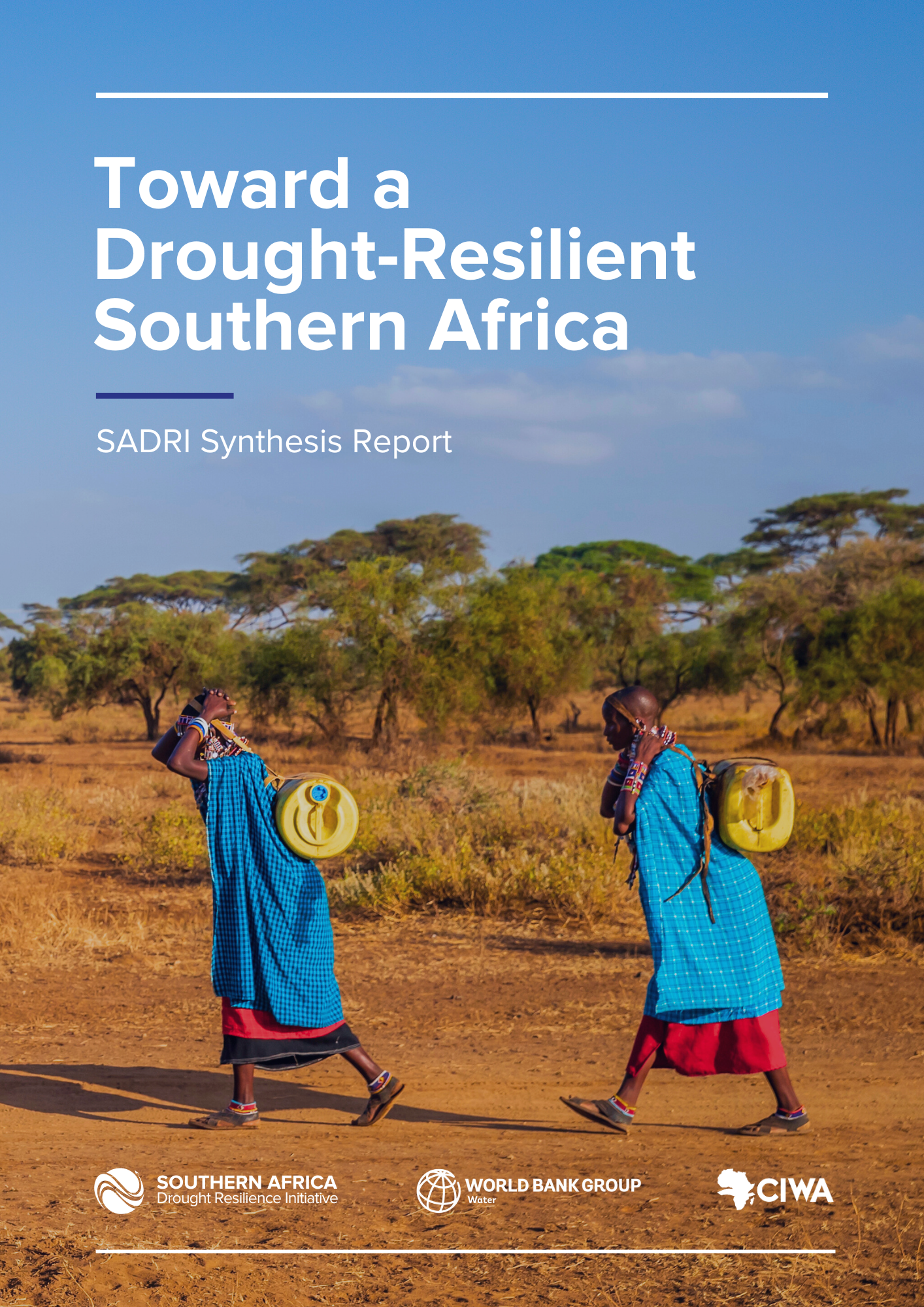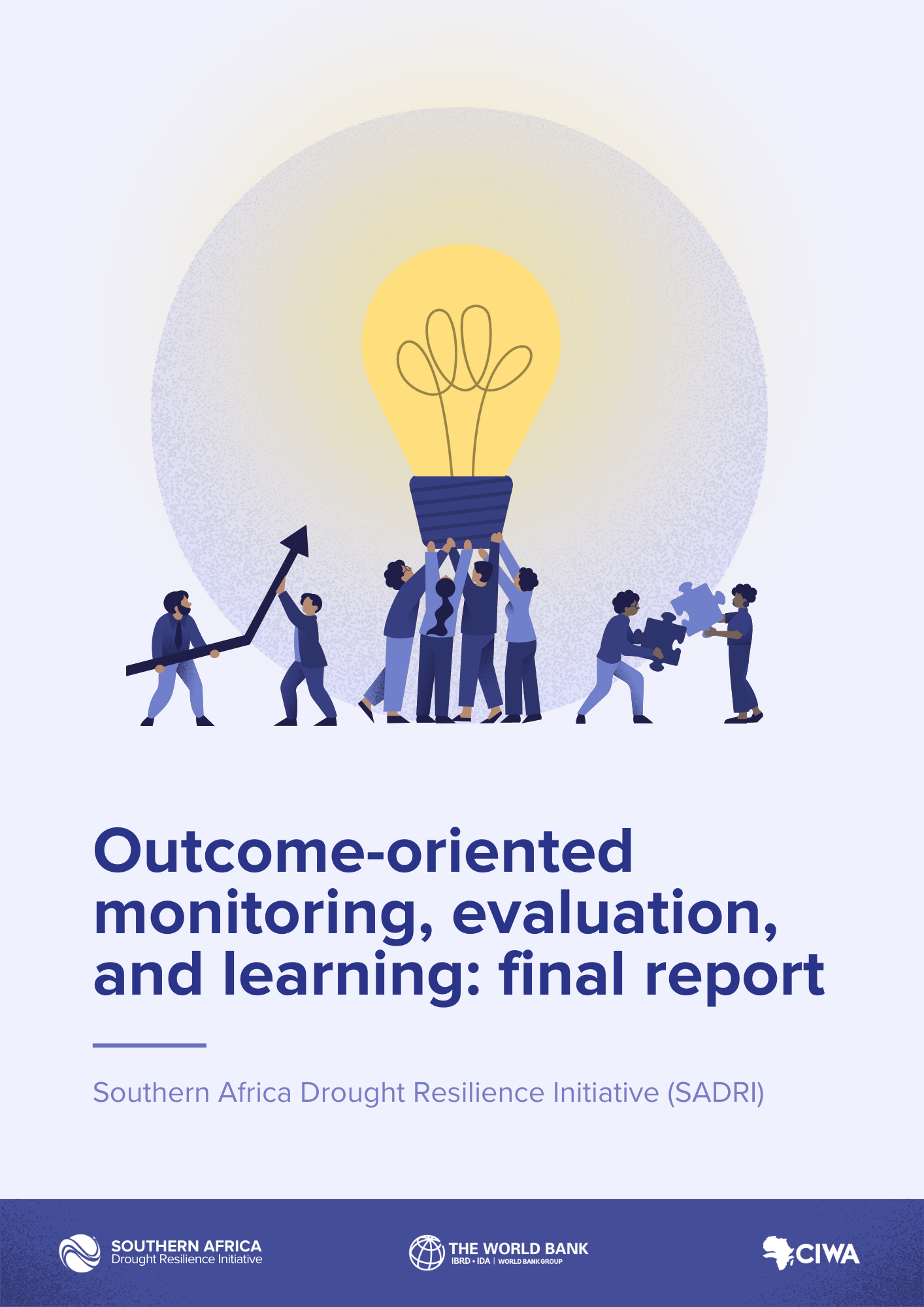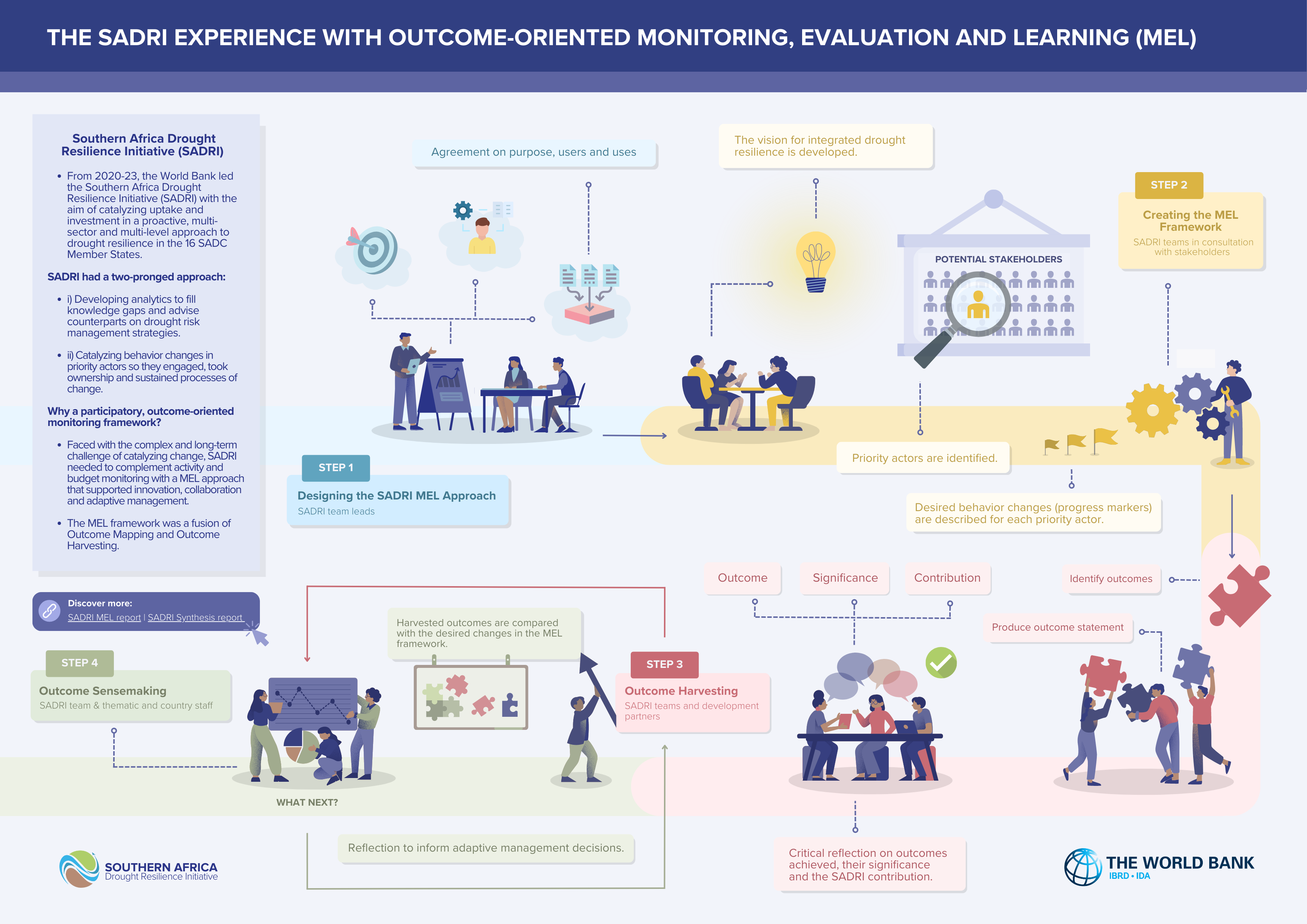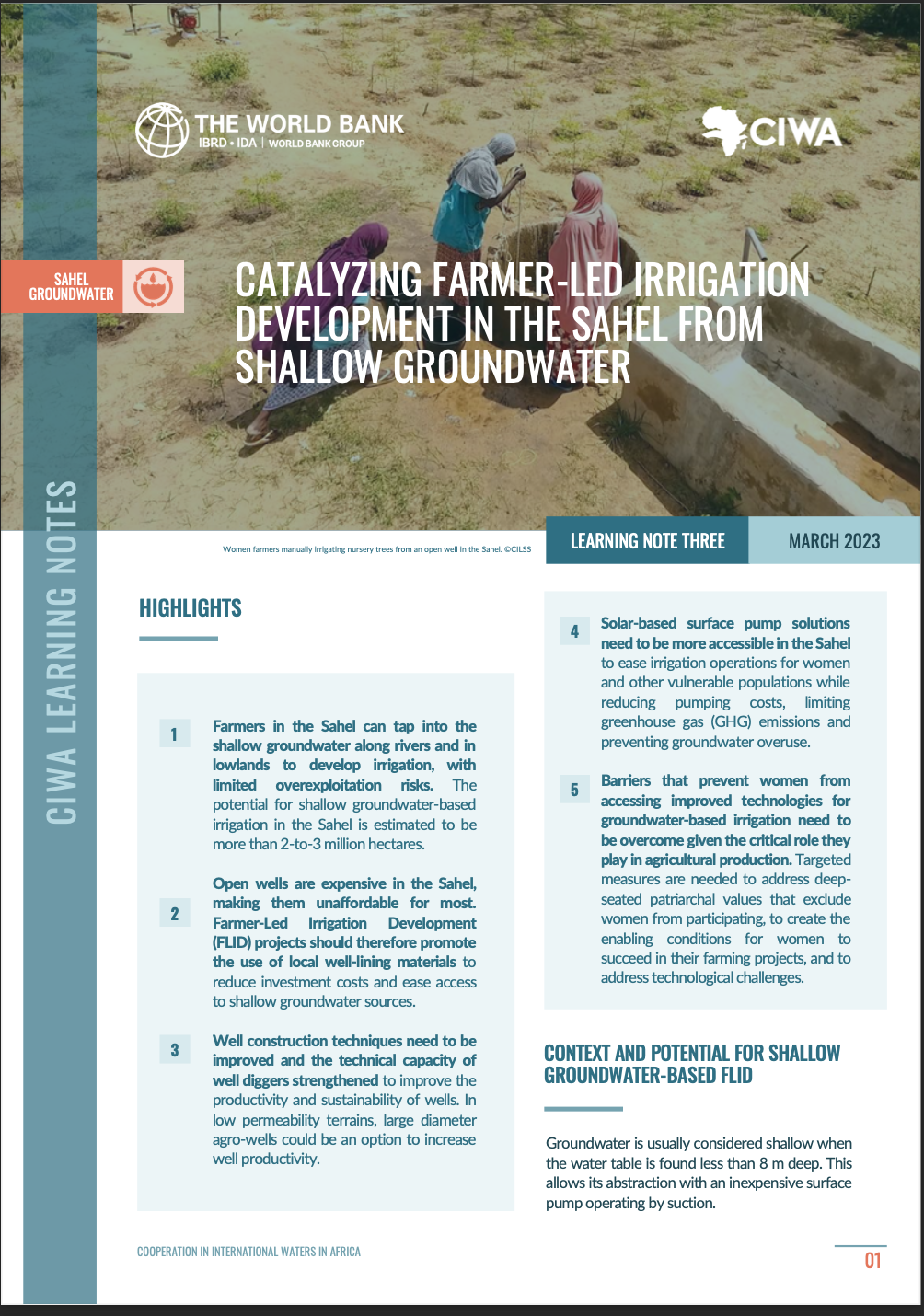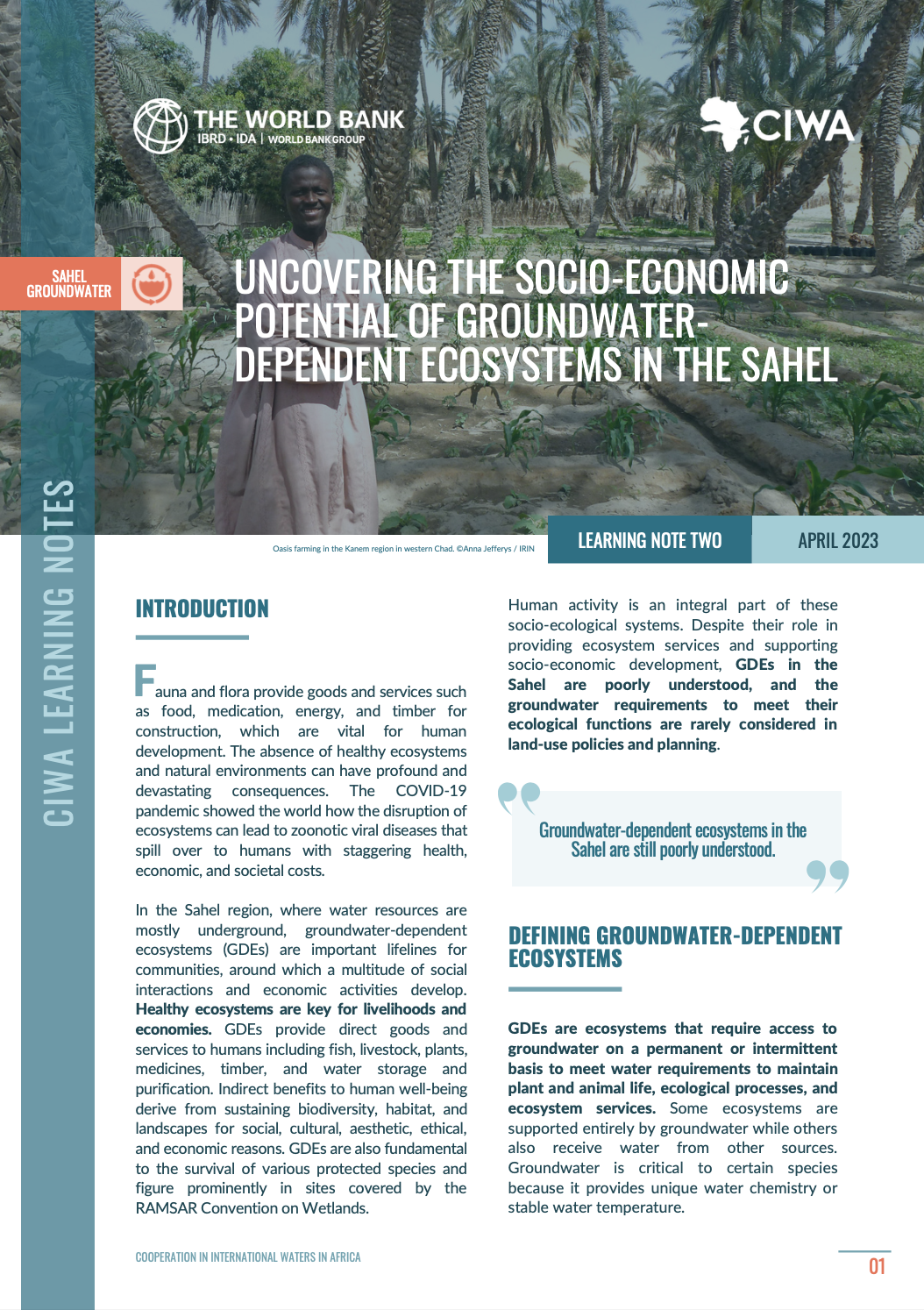CIWA’s FCV Framework
The development objective of the CIWA FCV Framework is to provide Task Teams a step-by-step guidance to enhance effectiveness of CIWA-funded activities in FCV-affected areas. It provides background information on CIWA’s engagements in water cooperation, resources, and references for building a relevant project narrative and a methodology for systematically applying conflict sensitivity to project design that will support the project cycle.
Toward a Drought-Resilient Southern Africa – SADRI Synthesis Report
This Synthesis Report provides an overview of the challenges posed by drought in Southern Africa, as well as the progress that has been made in recent years by the SADRI Pillar Teams to identify knowledge gaps and explore integrated systems and frameworks to build drought resilience in the region.
Outcome-Oriented Monitoring, Evaluation, and Learning – Final Report – SADRI
This report describes the development, use, added value, challenges, and success factors of SADRI’s outcome-oriented monitoring approach. It is intended as a resource for teams that want to understand the steps involved and the benefits it can bring, challenges, and factors that can make it function successfully.
The SADRI Experience with Outcome-oriented Monitoring, Evaluation and Learning (MEL)
This infographic describes the development, use, added value, challenges, and success factors of the Southern Africa Drought Resilience Initiative (SADRI)’s outcome-oriented monitoring approach.
City Drought Risk Management Toolkit
The Urban Drought Risk Management Toolkit provides a conceptual framework, guidelines, methodologies, tools, and data sources to assist teams in improving urban drought management and disaster resilience in SADC region.
Water Production, Use, and Governance in the Pafuri Sengwe node of the Greater Limpopo Transfrontier Conservation Area
The assessment provides important insights into the water situation in the Pafuri-Sengwe area and highlights the need for integrated conservation and development, as well as improved water management practices.
Technical Note on Homestead Farm-ponds for Micro-scale Irrigation in the Eastern Cape of South Africa – SADRI
This technical note provides information on the design, construction, and operation of homestead farm-ponds for micro-scale irrigation in the Eastern Cape of South Africa. The note discusses the benefits of the homestead farm-pond irrigation system for smallholder farmers, particularly women, and provides recommendations for the government of South Africa on how to promote the system.
Review of Strategic Food Reserves Policies for Improving Resilience to Drought – SADRI
The focus on strategic food reserves has increased due to the COVID19 pandemic, but the modernization of the management of such reserves is critical to achieving the development objectives. This activity will follow the regional policy recommendations emanating from the recent work on agriculture risk finance and conduct deep-dive policy analysis on food reserves and drought resilience in at least 1 SADC country (Zambia, or Zimbabwe).
CIWA Learning Note: Catalyzing Farmer-Led Irrigation Development in the Sahel from Shallow Groundwater
The key findings from the work on shallow groundwater for FLID in the Sahel are outlined in Learning Note #3 of the Sahel Groundwater Learning Note series.
CIWA Learning Note: Uncovering the socio-economic potential of groundwater-dependent ecosystems in the Sahel
In the Sahel region, where water resources are mostly underground, groundwater-dependent ecosystems (GDEs) are important lifelines for communities, around which a multitude of social interactions and economic activities develop. Read our new Learning Note.



